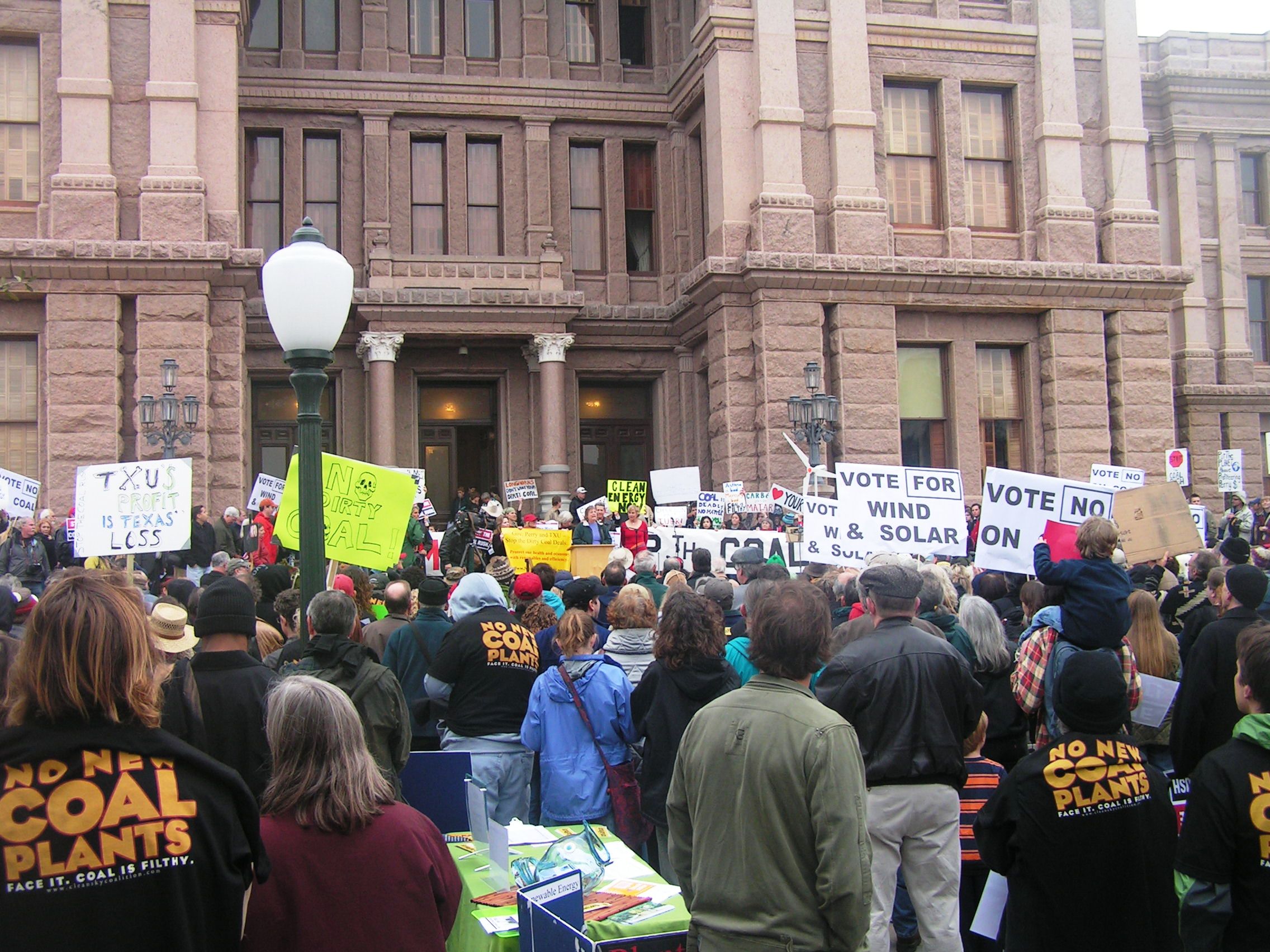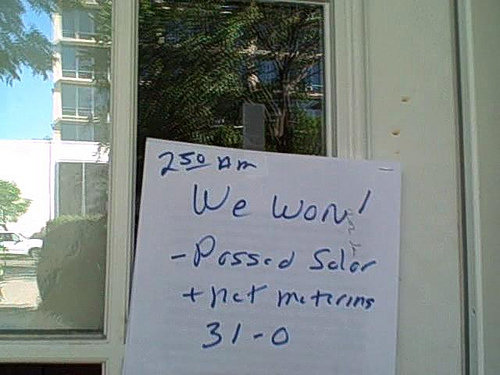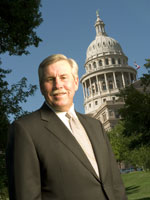Guest Blog by Marion Mlotok
On Thursday, May 30, 2013, the Texas Senate held a public hearing on redistricting as a launch of the 83rd 1st special session. The hearing started at 9:00 am and closed at 11:30 am after everyone had testified. Testimony was for 3 minutes each. I arrived early to a nearly empty auditorium, and when the hearing started, the hearing room was far from packed.
A number of attendees at the hearing, including some of the Senators, pointed out that this was mighty short notice for a public hearing with such far-reaching consequences. The announcement of the hearing was made Monday, May 27 at 5:30 pm, 62 hours before the hearing, according to Chair, Kel Seliger. Also the hearing was set for 9:00am on a work day. No field hearings were or will be scheduled. It was also brought up that the minorities most affected by this redistricting were the least likely to be able to arrange and afford to take time off work, arrange and afford childcare and afford transportation to Austin.
There will be two more Senate redistricting hearings, Thursday, June 6 and Wednesday, June 12, both at 9:00 a.m. in the Finance Room, E1.036. All amendments and alterations must be submitted by noon June 10 for consideration for the June 12 meeting.
Most of the testimony was opposed to the maps in SB1, SB2, SB3 and SB4 on the basis of disenfranchisement of minorities.
My testimony was about Austin being split into 6 US Congressional districts, one snaking to Houston, one to Fort Worth, two to San Antonio and one to Laredo. I pointed that Austin would have no US Congressional representation in Washington. Austin is big enough to have 7/8 of it as one Congressional district. In a world that made sense, the other 1/8 of Austin would be in a compact district contiguous with the main Austin district. Likewise, Travis County is big enough to be almost two US Congressional districts and shouldn’t be split into 5 districts, effectively disenfranchising Travis voters in Washington.
The only elected officials from Travis County or Austin represented were the Travis County Commissioners who registered opposition to the US Congressional map splitting Travis County into 5 US Congressional districts, each having less than 35% of the voters from the district living in Travis County. The objection was that effectively Travis County would have no representation in the US Congress.
The maps in these bills are the interim maps that were drawn so we could have 2012 elections. You’ll find interactive maps on the official Texas Redistricting website here: http://www.tlc.state.tx.us/redist/redist.html
You can choose cities and choose to overlay various maps that have been submitted as well as overlay the interim maps for US Congress, Texas Senate and Texas House.
Parallel to this, court is in session in San Antonio with various minority plaintiffs on our redistricting vis a vis the Voting Rights Act.
House Hearings
The House will be having hearings on the companion bills HB1, HB2, HB3 and HB4 tomorrow, Friday, May 31 and Saturday, June 1, both days at 9:00 a.m. in the Capitol Extension Auditorium, E1.004, opposite the cafeteria.
I would urge those who can to attend the hearings and record your opposition to these bills. They disenfranchise the minority vote and they disenfranchise Austin and Travis County. To that end, I’ve reached out to a number of our City Council members and Texas House Reps from Austin and our Austin/Travis Senator Kirk Watson to please come to the hearings and get on record with their voice on this significant issue for the area.
Video of the hearing is at http://www.senate.state.tx.us/avarchives/ramav.php?ram=00006247



 Last night at 11:58 pm (wink, wink),
Last night at 11:58 pm (wink, wink),  This afternoon, the Senate has
This afternoon, the Senate has  During these dark, cloudy times at the Texas legislature, Senator Fraser can shine a ray of hope into the Senate chamber. He can create a pool of $500 million in solar rebates over the next 5 years, start a pilot program to put solar on schools, and create as many as thousands of green, local jobs in one fell swoop. He can fix net metering so that individuals get a fair buy-back for the excess electricity they produce and actually have an incentive to shell out the cash for a new solar installation. He can also ensure that Texas ends up with an additional 500 MW of non-wind renewables.
During these dark, cloudy times at the Texas legislature, Senator Fraser can shine a ray of hope into the Senate chamber. He can create a pool of $500 million in solar rebates over the next 5 years, start a pilot program to put solar on schools, and create as many as thousands of green, local jobs in one fell swoop. He can fix net metering so that individuals get a fair buy-back for the excess electricity they produce and actually have an incentive to shell out the cash for a new solar installation. He can also ensure that Texas ends up with an additional 500 MW of non-wind renewables. A bill currently moving in the Texas Legislature, HB 4525, would create new state subsidy of $50 million each for new nuclear and coal plants.
A bill currently moving in the Texas Legislature, HB 4525, would create new state subsidy of $50 million each for new nuclear and coal plants.

